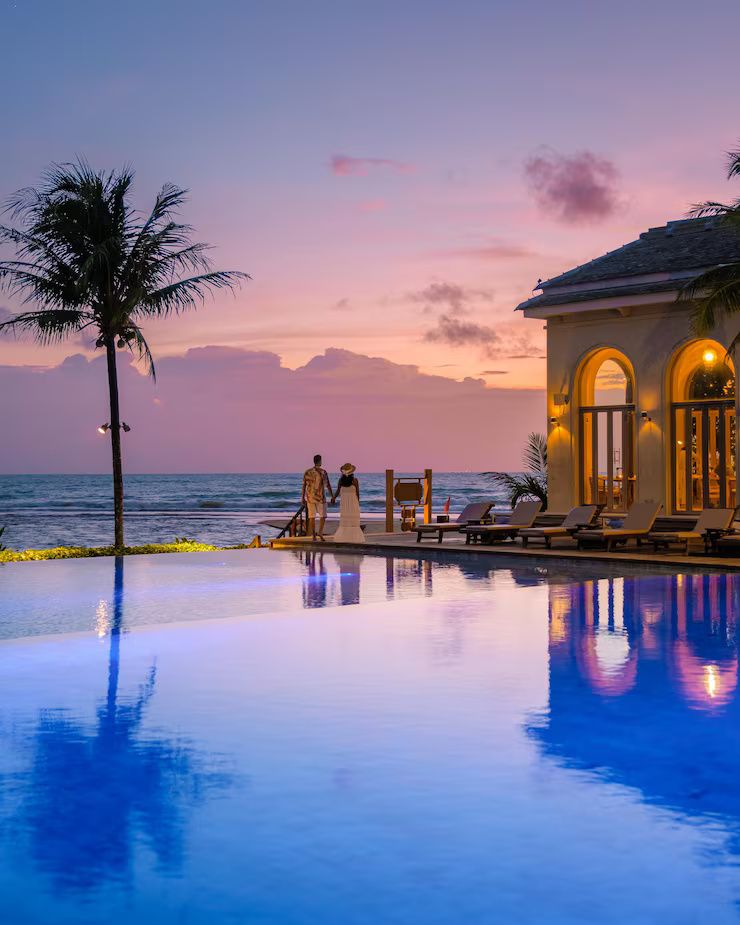Exploring Resorts: Facts, Details, and Key Information to Understand and Appreciate
Resorts are accommodations designed to provide not only lodging but also leisure, recreation, and entertainment in a single location. Unlike standard hotels, resorts often include amenities such as pools, spas, sports facilities, dining options, and curated experiences.
They exist to meet the growing demand for holistic vacations, where travelers can relax, enjoy activities, and immerse themselves in local culture without leaving the property. Resorts may be beachfront, mountain-based, desert-themed, wellness-focused, or integrated into large tourist complexes.
By blending hospitality with recreation, resorts aim to create a setting where comfort and enjoyment come together, making them an essential part of modern tourism.

Why Resorts Matter Today
Resorts have become significant in today’s tourism industry due to their role in providing all-inclusive experiences. Their importance lies in several areas:
-
Global Travel Trends: Resorts attract both leisure and business travelers seeking convenience and quality experiences.
-
Family Vacations: With activities for adults and children, resorts often serve as destinations for family travel.
-
Wellness and Lifestyle: Many resorts integrate spas, yoga centers, and health-conscious dining, aligning with the rising wellness travel market.
-
Economic Growth: Resorts contribute to local economies by generating tourism revenue, jobs, and community development.
-
Sustainable Travel: Eco-resorts highlight renewable energy, waste management, and eco-friendly design to reduce environmental impact.
For travelers, resorts solve challenges like planning multiple activities, ensuring safety for families, and providing all-in-one convenience.
Recent Updates and Trends in Resorts
Resorts worldwide have evolved with new trends and innovations in 2023–2024:
-
Sustainability Initiatives (2023): Many resorts adopted eco-friendly operations, such as solar power, water recycling, and plastic reduction.
-
Technology Integration: Contactless check-ins, smart room controls, and mobile concierge apps became common features.
-
Wellness-Oriented Resorts: A rise in demand for mindfulness retreats, spa-focused resorts, and nutrition-based dining.
-
Cultural Experiences: Resorts increasingly incorporate local art, traditional performances, and region-inspired architecture.
-
Long-Stay Packages: With remote work growing, resorts introduced extended stay options for digital nomads and long-term guests.
-
Adventure and Activity-Focused Resorts: Properties now include diving schools, trekking packages, or skiing facilities to appeal to active travelers.
These trends show that resorts are no longer just about luxury but also about sustainability, inclusivity, and lifestyle preferences.
Laws and Policies Shaping Resorts
Resorts operate within strict hospitality regulations and tourism guidelines that vary by country. Common global practices include:
-
Health and Safety Standards: Regulations mandate fire safety, food hygiene, and emergency preparedness.
-
Environmental Compliance: Eco-resorts often follow green certifications and government environmental policies.
-
Tourism Taxes: Some countries apply tourism or sustainability taxes per night to support local development.
-
Zoning and Land Use Laws: Resorts must comply with construction, coastal protection, and heritage preservation rules.
-
Accessibility Requirements: Increasing emphasis on making resorts inclusive for travelers with disabilities.
These policies ensure that resorts remain safe, sustainable, and beneficial for both travelers and local communities.
Helpful Tools and Resources for Learning About Resorts
Travelers and learners can use various tools to explore resort options and deepen their understanding:
-
Booking Platforms: Websites such as Booking.com, Expedia, and Agoda provide details, reviews, and amenities.
-
Comparison Tools: Sites like Trivago allow price and facility comparisons across resorts.
-
Tourism Boards: Official tourism websites offer reliable information on certified resorts in a region.
-
Sustainability Certifications: Look for resorts accredited by Green Globe, LEED, or EarthCheck.
-
Travel Apps: TripAdvisor and Google Maps provide reviews, ratings, and travel tips.
-
Wellness Resources: Wellness Travel Association shares insights on health-focused resorts and retreats.
These tools empower travelers to make informed decisions while also supporting research and planning.
Frequently Asked Questions About Resorts
What makes a resort different from a hotel?
Hotels primarily provide lodging, while resorts combine accommodation with recreation, dining, and leisure activities in one location.
Are all resorts luxury-focused?
Not necessarily. While many resorts emphasize luxury, there are also mid-range, eco-friendly, and family-oriented resorts designed for different budgets and preferences.
Do resorts always include meals and activities?
Some resorts offer all-inclusive packages, while others allow guests to choose à la carte services. It depends on the property’s structure.
What are eco-resorts?
Eco-resorts are properties that focus on sustainability, often using renewable energy, eco-friendly construction, and conservation-focused practices.
Can business travelers stay in resorts?
Yes, many modern resorts include conference centers, meeting rooms, and work-friendly amenities to accommodate business guests.
Final Insights
Resorts remain an essential part of global tourism, offering travelers more than just a place to stay. They blend comfort, leisure, wellness, and cultural immersion into a unified experience. As tourism evolves, resorts continue to adapt with sustainability initiatives, digital innovations, and new lifestyle-focused offerings.
Whether located along a tropical beach, nestled in mountain landscapes, or within urban centers, resorts provide opportunities to relax, learn, and connect with local cultures. Understanding their role, policies, and trends helps travelers make smarter choices and appreciate the broader impact of resorts in the travel world.